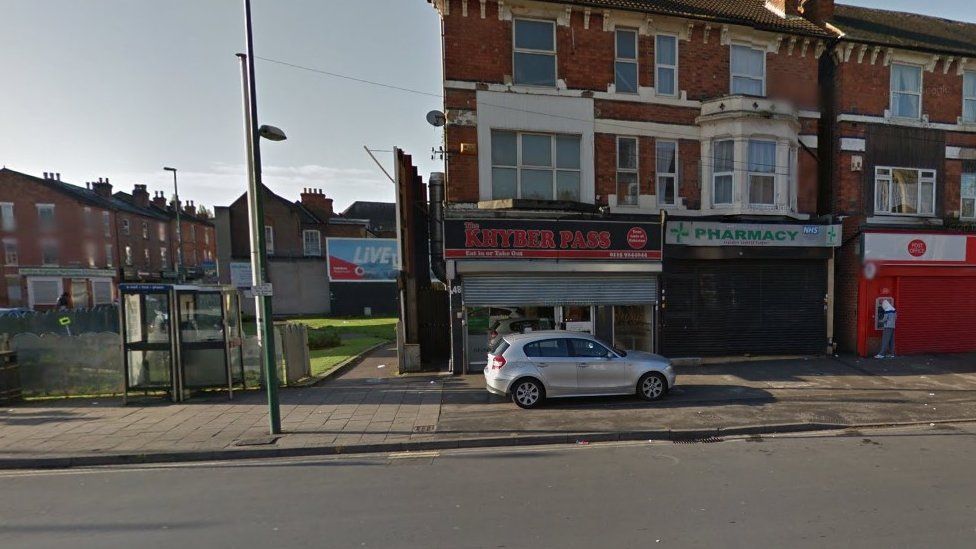Remind me not to eat prata in NZ. Here in sinkiepoo the ah neh merely snots into the flour .
Be careful in the UK too.
Khyber Pass kebab shop fined over human faeces contamination
Published
23 September 2015
Image source, Google
Image caption, The Khyber Pass in Hyson Green, Nottingham, was closed after a rare outbreak of E. coli was linked to food sold at the takeaway
The owners of a kebab shop which sold food contaminated with human faeces have been ordered to pay compensation to customers who became ill.
A rare strain of E. coli - only the second outbreak of its kind in Europe - was found at The Khyber Pass in Nottingham in June 2014.
In August, owners Mohammad Abdul Basit and Amjad Bhatti pleaded guilty to breaching food hygiene regulations.
More than 140 people were affected by the outbreak.
Appearing at Nottingham Crown Court, the owners were each given a suspended four month jail sentence and ordered to pay each victim £200.
Breaches included selling food unfit for human consumption, poor personal cleanliness of food workers and inadequate hand washing facilities and drainage.
'Wholly inadequate'
An investigation by Nottingham City Council led to the discovery that the food poisoning organism responsible was Enteroinvasive E. coli (EIEC).
EIEC is only found in the human gut and so inspectors concluded people affected by the outbreak must have eaten food contaminated with human faeces.
Officials said the outbreak was traced to the restaurant after analysis of faecal specimens from patients.
The same strain of EIEC was found in lettuce prepared by food workers at the takeaway.
Paul Dales, from Nottingham City Council's food, health and safety team, said: "This was a significant and serious food poisoning outbreak affecting a large number of people, some of whom developed severe symptoms.
"It's fortunate there were no fatalities, as this is a strain of E. coli rarely found in the developed world, this being only the second confirmed outbreak in Europe."
"It's clear that hand-washing practices by some workers were wholly inadequate and this led to food becoming contaminated," he added.


